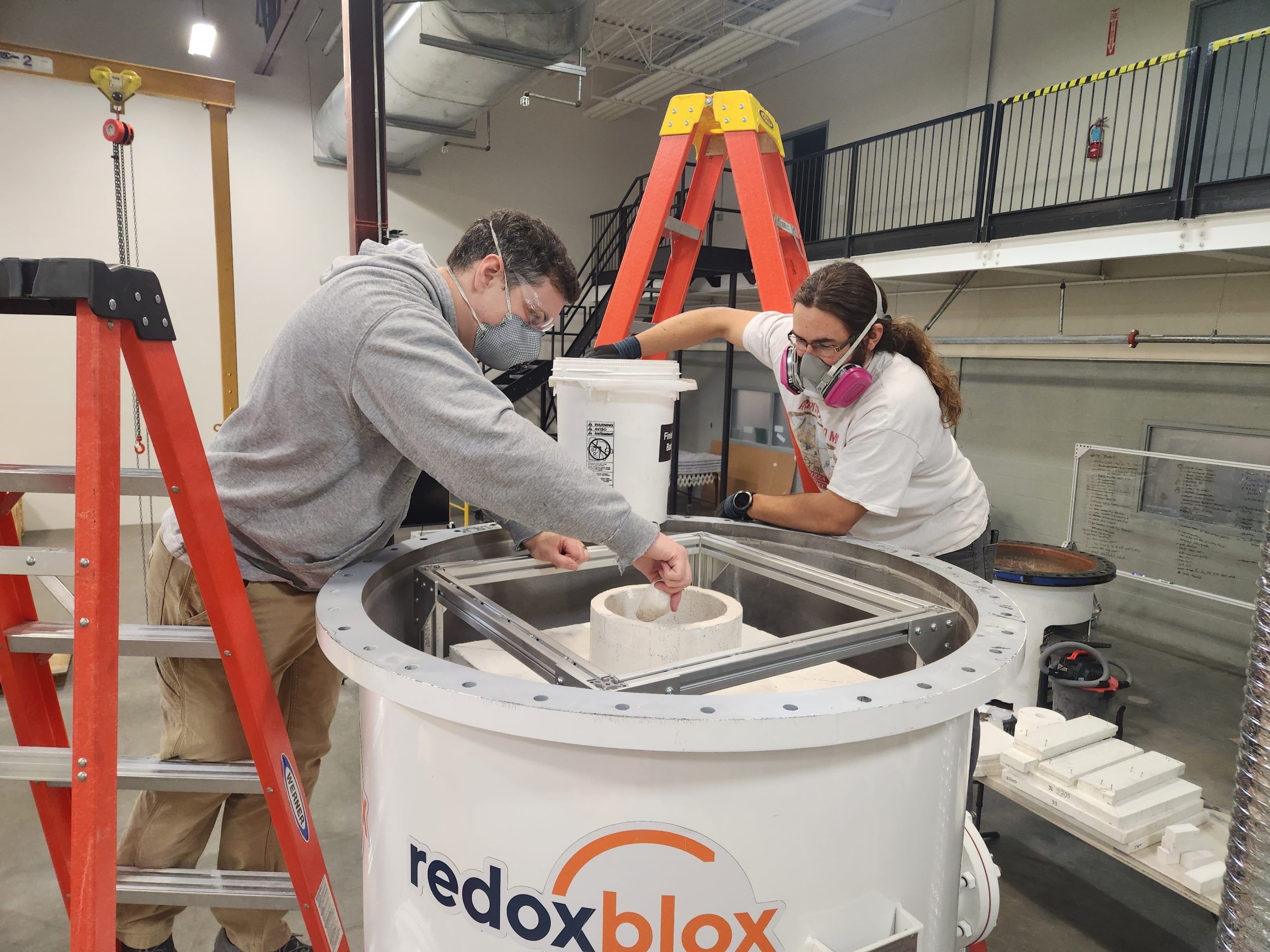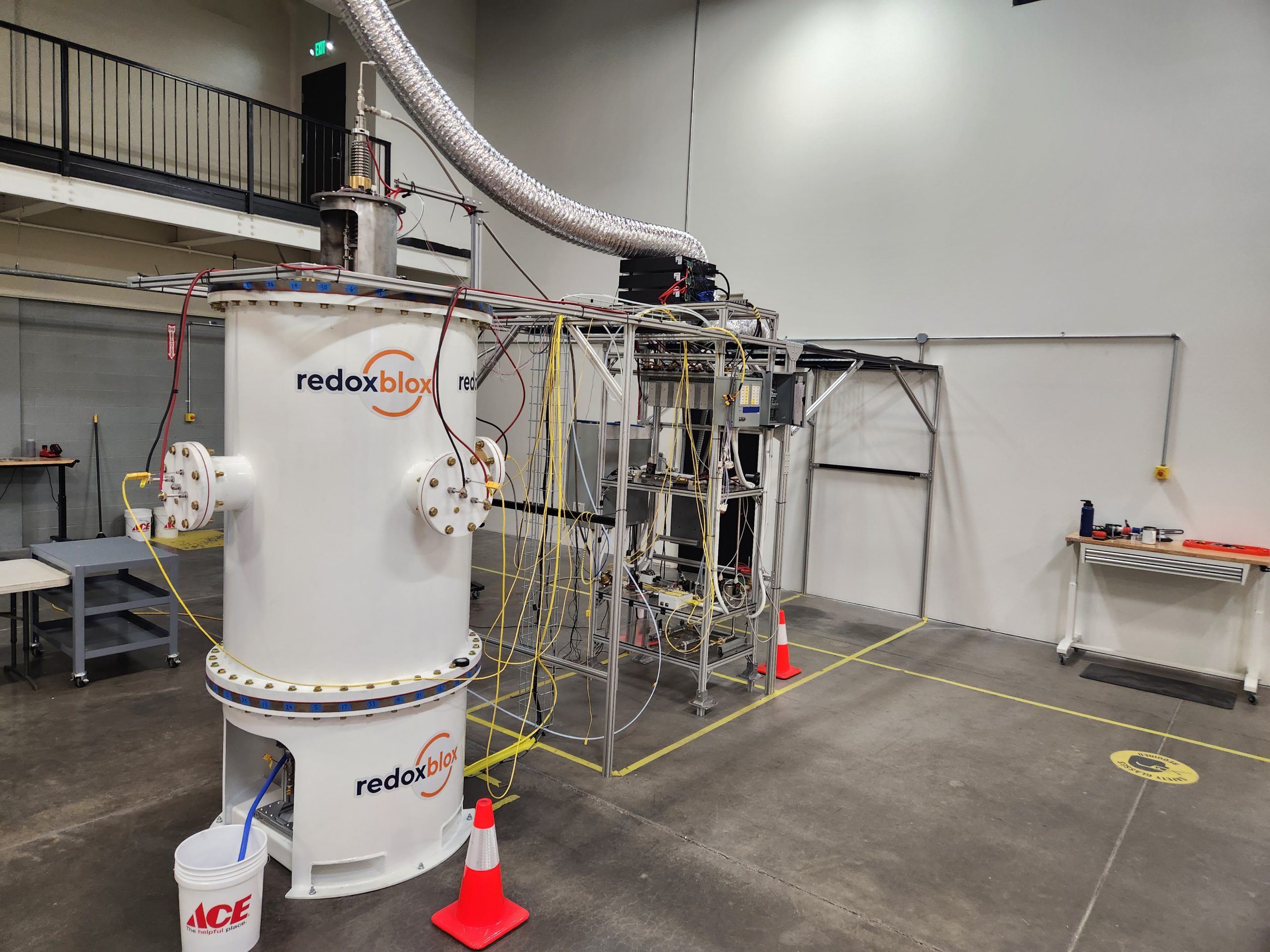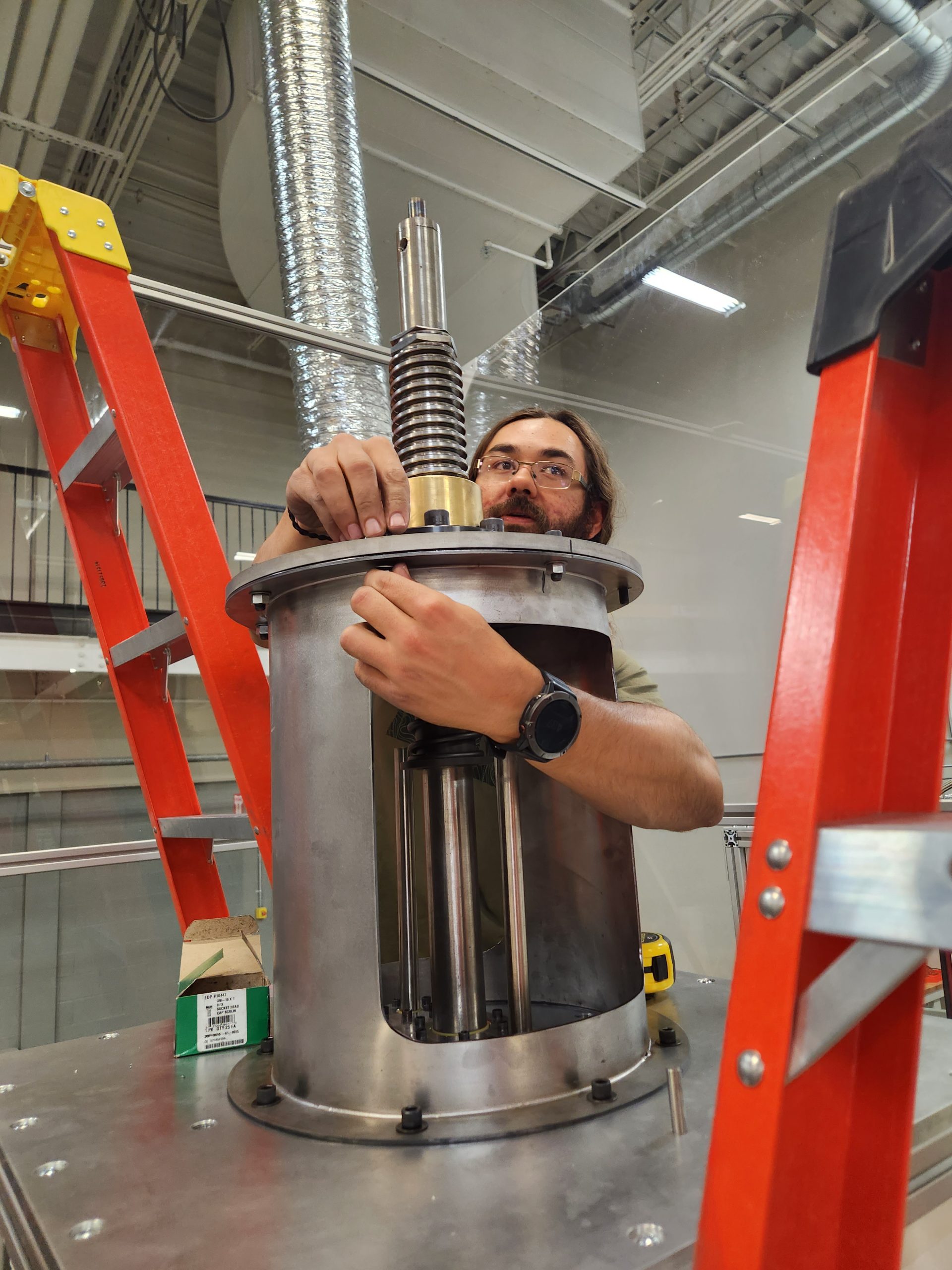East Lansing, MI – To reduce carbon emissions and combat climate change, more companies are moving away from their dependence on fossil fuels and turning to sources of renewable energy. RedoxBlox, a new company founded on technology developed at MSU and now based in San Diego, expands renewable energy sources and strengthens grid stability by providing energy storage solutions for power generation and industrial heat applications.
RedoxBlox stores excess production of renewable energy and delivers that energy back as heat or electricity when needed. The company’s storage module uses a receptacle filled with inexpensive, non-toxic, non-flammable metal oxide pellets that are fully recyclable. The material is heated by renewable electricity to temperatures up to 1500 °C, fully charging the system in less than four hours. The RedoxBlox technology uses heat to trigger a chemical reaction that releases oxygen and stores the heat in the form of chemical energy. The reaction is then reversed when stored energy is needed.
“To decarbonize is the major driving impetus for our technology and why we exist as a company,” said MSU Foundation Professor James Klausner, Ph.D., co-founder and executive chairman of RedoxBlox. “We’re targeting industrial heat and grid storage. If we decarbonize both those industries, that addresses about half of all carbon emissions around the world, so that has a huge impact. But we do not rely on the goodwill of others wanting to decarbonize. We rely on being competitive against natural gas. We rely on a good business proposition to decarbonize.”
 Much of the intellectual property that RedoxBlox developed was done at Michigan State when Klausner came to MSU from the University of Florida to chair the Department of Mechanical Engineering. The MSU Innovation Center collaborated with the company’s founders on the best structure to support RedoxBlox to ensure it was in an optimum position for investment.
Much of the intellectual property that RedoxBlox developed was done at Michigan State when Klausner came to MSU from the University of Florida to chair the Department of Mechanical Engineering. The MSU Innovation Center collaborated with the company’s founders on the best structure to support RedoxBlox to ensure it was in an optimum position for investment.
“The awards we present at the MSU Innovation Celebration honor RedoxBlox and other startup companies, students, and faculty members who are taking a risk by investing in the translation of their technology to the public,” said Anne Di Sante, Executive Director of MSU Technologies. “Their work is not easy. They are looking at another way for their work to have an impact. Faculty have an impact when they publish or teach students. This is another way to make an impact. As a land grant institution, that’s important to us.”
 RedoxBlox Chairman Dane Boysen estimates that the company could reach half a billion in revenue by 2030, a year he refers to as a magic number for the company because that is how long it can take advantage of potential tax credits through the Inflation Reduction Act. The law provides up to a 30% credit for qualifying investments in wind, solar, energy storage, and other renewable energy projects that meet certain standards.
RedoxBlox Chairman Dane Boysen estimates that the company could reach half a billion in revenue by 2030, a year he refers to as a magic number for the company because that is how long it can take advantage of potential tax credits through the Inflation Reduction Act. The law provides up to a 30% credit for qualifying investments in wind, solar, energy storage, and other renewable energy projects that meet certain standards.
“We have to get a product out within the next two years to really take advantage of those tax credits, but they start expiring in 2030,” Boysen said. “I think the Inflation Reduction Act production tax credit will be just a huge boom for us. It’s like putting our company on steroids.”
 The Department of Energy’s Industrial Efficiency and Decarbonization Office recently awarded RedoxBlox $6.7 million to showcase the decarbonization of industrial steam at Dow Chemical Company’s facility in West Virginia. RedoxBlox received a total of $25 million for thermochemical energy storage technology demonstrations. In addition to the DOE award, the funding includes $8.9 million from the California Energy Commission and $9.4 million in Series A funding led by Khosla Ventures, a California venture capital firm.
The Department of Energy’s Industrial Efficiency and Decarbonization Office recently awarded RedoxBlox $6.7 million to showcase the decarbonization of industrial steam at Dow Chemical Company’s facility in West Virginia. RedoxBlox received a total of $25 million for thermochemical energy storage technology demonstrations. In addition to the DOE award, the funding includes $8.9 million from the California Energy Commission and $9.4 million in Series A funding led by Khosla Ventures, a California venture capital firm.
In addition to the consultative support the MSU Innovation Center provided to RedoxBlox, the company received multiple investments from Red Cedar Ventures, the venture investment subsidiary of the MSU Research Foundation. The MSU Innovation Center acts as an ecosystem, helping researchers leverage a spectrum of resources to help them translate technology from the lab to the marketplace.
“We have a lot of bandwidth,” said Jeff Wesley, Executive Director of Red Cedar Ventures. “When you compare us to other organizations around the country, they might have a piece of what we do, but we really have a great model when it comes to our venture studio and our venture funds to provide the people, the connections, the programming, the funding, and one-stop shop for these early technologies.”
Boysen said working with Red Cedar Ventures and the MSU Research Foundation has been a great experience.
“Their resources and always being willing to help definitely made life easier in terms of getting things going. It’s nice to have a friendly investor-partner in your corner because not all investors are like that.”
Read more about the 2024 Innovation Celebration Award winners HERE.
###
About the MSU Innovation Center:
The MSU Innovation Center is dedicated to fostering innovation, research commercialization, and entrepreneurial activities from the research and discovery happening across our campus every day. We act as the primary interface for researchers aiming to see their research applied to solving real-world problems and making the world a better place to live. We aim to empower faculty, researchers, and students within our community of scholars by providing them with the knowledge, skills, and opportunities to bring their discoveries to the forefront. Through strategic collaborations with the private sector, we aim to amplify the impact of faculty research and drive economic growth while positively impacting society. We foster mutually beneficial, long-term relationships with the private sector through corporate-sponsored research collaborations, technology licensing discussions, and support for faculty entrepreneurs to support the establishment of startup companies.
